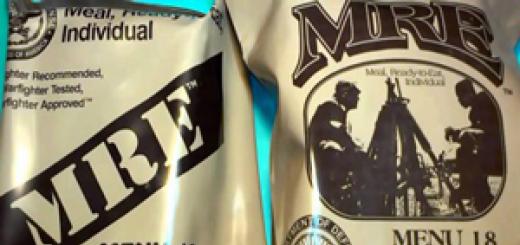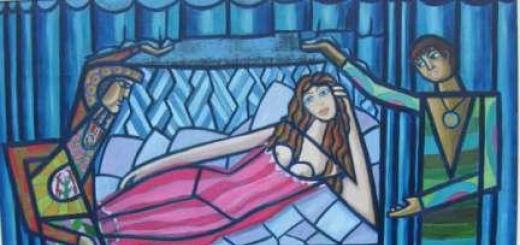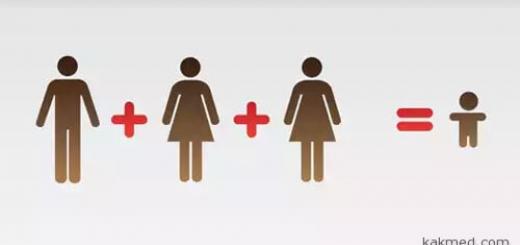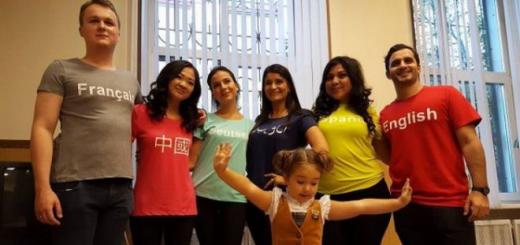Prophet Nahum (VII century BC).
The holy prophet Nahum is one of the 12 minor prophets, originally from the village of Elkosha (Galilee). His life dates back to the 7th century. BC The Old Testament book of the prophet Nahum contains a prediction of the death of the Assyrian city of Nineveh for iniquity, the destruction of the kingdom of Israel and for the blasphemy of the Assyrian king Sennacherib against Jehovah. The circumstances of the prophet's life are unknown. He died at the age of 45 and was buried in his native land.
 Righteous Philaret the Merciful
(792).
Righteous Philaret the Merciful
(792).
Righteous Philaret the Merciful, the son of George and Anna, brought up in piety and the fear of God, lived in the 8th century. in the village of Amnia in the Paflagonian region (Asia Minor). His wife, Theoseva, was from a rich and noble family, they had children: a son, John, and daughters, Hypatia and Evanthia.
Filaret was a rich and noble nobleman, but his wealth did not please him. Knowing how many people suffer from poverty, he recalled the words of the Savior about the terrible judgment and about "these little ones" (Matt. 25, 40), the words of the apostle that a person, dying, takes nothing away from the world (1 Tim. 6 , 7), the lines of King David about the reward of the righteous (Ps. 36, 25). And Filaret became famous for his poverty. Once the Israelis (Arabs) attacked Paphlagonia, devastated the country and plundered Filaret's property. He left 2 oxen, a cow, several beehives and a house. But this, the last, he gradually distributed to the poor. Steadfastly and meekly he endured the reproaches of his wife and the ridicule of his children. "I have in secret places unknown to you, such wealth and such treasures," he answered his relatives, "that you will get even if you live a hundred years without labor and without worrying about anything."
And the Lord repaid Philaret for his mercy: when the last measure of wheat was given away, his old friend sent him forty measures, and after warm clothes were given to the beggar, wealth returned to him. At that time, the Byzantine Empress Irina (797-802) was looking for a bride for her son, the future co-ruler Constantine Porphyrogenitus (780-797), and for this purpose she sent ambassadors throughout the empire. The ambassadors did not pass by Amnia either. When Filaret and Feozva learned that the highest guests were to visit their house, Filaret was very happy, and Feozva was sad: there was no food at all in the house, and there was nothing to think about a proper treat. But Filaret ordered his wife to thoroughly clean the house. Neighbors, having learned that royal ambassadors were expected, brought everything in abundance for a rich feast. The ambassadors selected for the royal show, along with 10 beautiful girls, Filaret's granddaughter, Maria. Maria surpassed her rivals in kindness and modesty and became queen, and Constantine Porphyrogenitus generously endowed Filaret. Thus fame and fortune returned to Filaret. But, as before, the holy poor-lover generously distributed alms and arranged meals for the poor, and himself served them during these meals. Everyone marveled at Filaret's humility and said: "Truly, this man is all of God, a true disciple of Christ." He ordered the servant to make three boxes and fill them separately with gold, silver and copper coins: from the first, the completely poor received alms, from the second - those who lost money, and from the third - those who hypocritically lured money. So, not accepting honors, in humility and poverty, the blessed elder reached 90 years old. Anticipating his death, he went to the Rodolphia Monastery in Constantinople, where he distributed everything that he had with him to the monastic needs and to the poor. Having called his relatives, he instructed them in love of poverty and non-acquisitiveness, and peacefully reposed to God. He died in 792 and was buried in the monastery of the Court of Rodolpheus in Constantinople.
The holiness of the righteous Filaret was confirmed by a miracle that appeared after his death. When the body of the saint was being carried to the burial place, one man, possessed by a demon, grabbed the coffin and followed with the funeral procession. At the cemetery, the demoniac was healed: the demon knocked the man to the ground, and he himself came out of him. Many other miracles and healings took place at the tomb of the saint.
After the death of the righteous Philaret, his wife Theozva labored, restoring monasteries and temples in Paphlagonia, destroyed during foreign invasions.
Mch. Anania Persian.
St. Astremoyne the first bishop. Clermontsky and app. Averginsky (III) .
St. Theocletus ep. Sparta (870) .
St. Tudvala ep. Lan-Pabsky.

Holidays December 14, 2019
Day of honoring the participants in the liquidation of the consequences of the accident at the Chernobyl nuclear power plant in Ukraine
The accident at the Chernobyl Nuclear Power Plant (ChNPP) occurred on April 26, 1986.
In 2006, on November 10, by the Decree of the President of Ukraine, the Day of honoring the participants in the liquidation of the consequences of the accident at the Chernobyl nuclear power plant was established, annually celebrated from that time on December 14. Various events and rallies dedicated to the events of these days are held throughout the country on this day, flowers are laid at the monuments of the dead liquidators, prayers and memorial events are held.
The construction of the sarcophagus over the destroyed fourth power unit of the Chernobyl nuclear power plant was completed on November 30, 1986. On December 14 of the same year, the state commission accepted the complex of protective structures into operation. This day became the Day of the liquidator.
The first time the participants of the liquidation gathered to celebrate the victory together was in 1986.
And in 1994, public organizations of Chernobyl victims of Ukraine sent a letter to all leaders of the state with a proposal to establish the Day of participants in the liquidation of the Chernobyl disaster in the calendar. But no decision was made that year, and the liquidators began to celebrate this date on their own.
Later, the celebration of this Day was adopted officially. On this day, various power structures allocate a guard of honor, lay wreaths from the leaders of different states.
The state status of the Liquidator's Day in Ukraine reminds the public of the problems of Chernobyl liquidators. AT Russian Federation Liquidator's Day became an official holiday in April 2012, when the President of the Russian Federation Dmitry Medvedev signed the Federal Law, according to which a new memorable date was established in Russia - April 26 - the Day of participants in the liquidation of the consequences of radiation accidents and disasters and the memory of the victims of these accidents and disasters.
Day of Prosecutors in Tajikistan
The bodies of the prosecutor's office of the Tajik SSR were formed in 1924 and since then the Tajik prosecutor's office, performing its special functions, has been guarding the rights and legitimate interests of citizens.
The prosecutor's office of Tajikistan has gone through difficult stages in its development. The priority areas of work of the Tajik prosecutor's office have always been: protecting the legitimate interests of the state, overseeing the observance of the rights of a citizen, combating crime, and overseeing the observance of laws by authorities.
Currently, about 1 thousand people work in the bodies of the Prosecutor's Office of the Republic of Tajikistan.
Religious holiday
Naum on mind
What a church holiday today everyone knew in Christians in Rus'. On this day, Orthodox Christians celebrated the memory of the holy prophet Naum, who lived before the birth of Christ in the 7th century in Galilee. About the life of Naum, almost no information has survived to our time, but a book of prophecies is known, which Nahum wrote in 663 BC after the fall of Thebes.
The events described in the book of Nahum take place in the capital of the powerful Assyrian kingdom of Nineveh. Naum in his book predicted a severe but fair punishment for the sinful inhabitants of this city. After the appearance of this book of prophecies, the state of Nineveh fell under the blow of enemies, was completely destroyed and ceased to exist.
The prophet Nahum in Rus' was considered the patron of sciences and literacy. Our ancestors used to say: "Nahum guides the mind." On this day, children were taught to parish clerks.
This event was celebrated ceremonially. In the morning, the family went to church, where after the service they asked for blessings for their studies. At home, after dinner, they met the teacher, introduced the student to him and treated him. The lad made three earthly bows to the teacher, and in response the teacher symbolically gave him three light blows with a whip. The children had to obey the teacher implicitly. Teachers after the first lesson gave a loaf of bread on an embroidered towel, in which they tied money as payment for classes. Classes to the teacher were mainly paid for with food, parents brought a basket of eggs, a chicken, a pot of buckwheat porridge. The mother, according to custom, on this day was supposed to lament for her children, who went to study, because the teaching was accompanied by the hammering of sciences with rods.
This day was called "wise", so on this day they prayed for wisdom, asking to "think", "instruct the mind."
Name day December 14 with: Dmitry, Naum, Porfiry
Unusual holidays
Gum Day
Gum Day is one version of the Gum Day holiday. What is the best way to celebrate such a special day? Taking into account the originality of the event, you need to think over the festive table and choose the right drinks, because this is what will surprise your faithful comrades.
What to feed your friends?
Despite the fact that chewing gum is traditionally prepared in industrial conditions, this product is becoming available even for home preparation. To implement a unique idea, you will need the following ingredients:
Five tablespoons of lemon juice.
300 milliliters of sugar syrup.
100 milliliters of water.
A teaspoon of starch.
20 grams of gelatin.
100 milliliters of fruit juice.
Cooking pleases with simplicity, but you need to remember the following rules: the ingredients are mixed gradually, because first you need to prepare sugar syrup with a flavor, and then mix it all with starch and swollen gelatin. The chewing gum will turn out tasty if it is possible to achieve a homogeneous consistency and the product is aged in the refrigerator for about 6 to 8 hours.
What drink?
For Gum Day, you need to pick up light classic drinks and sparkling water:
Non-alcoholic mojito.
Lemonade.
Green tea.
Carbonated drinks - Fanta, Coca-cola, Spite.
The above drinks will allow you to experience the best facets of homemade chewing gum.
What to wish?
Despite the fact that the Gum Day involves a light friendly party and an extraordinary diet, it is advisable to put as many bright and real feelings and emotions into the wishes as possible.
The main line of the wish should be the desire to set the right path in proper and nutritious nutrition, care for good health and maintaining strength, energy, inspiration. Corresponding wishes can be appreciated not only by close people, but also by good friends.
On December 14th you can also celebrate:
- Day of antics in front of the mirror
— World Vaseline Day
- Day of a beautiful female breast
- Day of struggle with someone else's obsessive opinion
world calendars
Gregorian calendar: December 14, 2013 - Saturday, week 50, day 348 of the year
Julian calendar: December 1, 2013
Jewish calendar: 11 Tevet 5774
Islamic calendar: 10 Safar 1435
Chinese calendar: 12th day of the 11th month of the 30th year of the 74th cycle (snake, black, water)
National calendar of India: 23 Agrahayan 1935
Indian lunar calendar: 12 Margashirsha 2070 Vikram era - Bharani constellation
Persian calendar: 23 Azar 1392
Baha'i calendar: 1 kull-i shay 9 wahid 18 year (Abha) 15 month (Masail) 3 day (Jamal)
May calendar (Long count): 13 baktun 0 katun 0 tun 17 uinal 18 kin
Calendar "May" (Short account - Haab): 16th day of the month "Poppy"
Calendar "May" (Short account - Tzolkin): 11th day of the month "Ben"
French calendar: 4 days (Kvartidi) 3 decades 3 months (Frimera) 222 years
All holidays for today
Day of honoring the participants in the liquidation of the consequences of the accident at the Chernobyl nuclear power plant (Ukraine)
Day of Prosecutors (Tajikistan)
Alabama State Day (Alabama, USA)
Statehood Day (Alabama, USA)
Day of Remembrance of Children Who Died in the War (Abkhazia)
Tortured Intelligentsia Day (Bangladesh)
Victory day of Ali ibn Abu Talib in the battle of Nahravan (Shia)
Day of Suffering Janab-e-Sakin (Shia)
30th day of Ashura (Shia)
International day probation free programs(USA)
Monkey Day (International)
Naumov day (Ancient Slavs)
National Garlic Fish Chowder Day (USA)
National Horse Day (USA)
In Rus', the prophet Naum was considered the patron of sciences and letters (Photo: Mikhail Starodubov, Shutterstock)
Date according to the old style: December 1
This day marks the memory of the holy prophet Nahum, who lived in Galilee in the 7th century BC. Almost no information has been preserved about his life, however, a book of prophecies is known that came out from the pen of Naum shortly after the fall of Thebes in 663 BC.
The action of the book takes place in Nineveh - the capital of the powerful Assyrian kingdom. Naum predicts a severe but fair punishment for the sinful inhabitants of the city. And indeed, soon after the appearance of the book of prophecies, Nineveh fell under the blow of enemies, was completely destroyed and ceased to exist.
In Rus', the prophet Nahum was considered the patron of sciences and letters - probably not least because of his name. "Nahum instructs the mind", - our ancestors said, and on the day of the memory of the prophet, they gave children to parish clerks for teaching.
There was a whole ceremony: in the morning the whole family went to church, where they served a prayer service and asked for blessings for their studies. After, already at home, they met the teacher, treated him and introduced him to the student. The lad had to make three earthly bows to the teacher - and in response he received three light - symbolic - blows with a whip. After the first lesson, teachers were presented with an embroidered towel and a loaf of bread.
They prayed to St. Naum for wisdom, asking them to "instruct the mind", "think about it". They said that "Prophet Nahum sharpens the mind". On this day, other sayings about the mind and learning were also recalled: "A head without a mind is like a lantern without a candle"; “Whoever is literate is not an abyss”; “The root of learning is bitter, but its fruit is sweet”; “Not studying, and you can’t weave bast shoes”, - and so on.
Name day on this day
Dmitry, Naum, Porfiry
 This day is intended to remind the society about the problems of the Chernobyl liquidators (Photo: Yuriy Vlasenko, Shutterstock)
This day is intended to remind the society about the problems of the Chernobyl liquidators (Photo: Yuriy Vlasenko, Shutterstock) On April 26, 1986, one of the largest accidents at nuclear power plants occurred - the accident at the Chernobyl nuclear power plant (ChNPP).
With a view to a worthy celebration of courage, dedication and
high professionalism of the participants in the liquidation of the consequences of the accident at
Chernobyl NPP and in support of the initiative of public
organizations and the Ministry of Labor and Social Policy of Ukraine,
On November 10, 2006, by Decree of the President of Ukraine No. 945/2006, a memorable date was established - Day of honoring the participants in the liquidation of the consequences of the accident at the Chernobyl nuclear power plant(the second name of the holiday is "Liquidator's Day"), which is celebrated annually on December 14 (on the day the construction of the sarcophagus over the destroyed fourth power unit of the Chernobyl nuclear power plant was completed).
In general, the construction of the sarcophagus itself was completed on November 30, 1986, and on December 14, a message was printed in the Pravda newspaper that a complex of protective structures was put into operation by the state commission. And today, on this day, various events are held throughout the country dedicated to the memory of the liquidators of this accident - rallies, laying flowers at the monuments to the liquidators, prayers and other memorial events.
Specialists who consider December 14 their holiday have long called this day Liquidator's Day. Back in 1986, the liquidators got together to celebrate their first victory. In 1994, public organizations of Chernobyl victims of Ukraine addressed a letter to the leaders of the state, in which they proposed to establish in the calendar a day for the participants in the liquidation of the Chernobyl disaster. At that time, no official decision was made, but the liquidators independently began to celebrate this date.
Later, the celebration was officially allowed, a guard of honor was allocated from various law enforcement agencies, wreaths were laid from the leaders of the state, foreign embassies and public organizations, but there was no recognition of this day at the state level.
Giving state status to the Liquidator's Day once again reminds the society of the problems of Chernobyl liquidators, the most important of which is the insufficient pension for a normal life. Directly connected with this problem is another one - the problem of the status of liquidators of the Chernobyl accident. Only the first 5 thousand people from those who liquidated the accident officially began to be called liquidators, having received the appropriate certificates. Since 1992, everyone else was given the "crust" of the victims of the Chernobyl disaster.
Despite all the difficulties and problems, the liquidators themselves call December 14 a holiday. More than 650 thousand people from all over the Soviet Union took part in the liquidation of the Chernobyl disaster, of which more than half were residents of the Ukrainian SSR.
In Russia, Liquidator's Day became an official holiday quite recently.. In April 2012, President of the Russian Federation Dmitry Medvedev signed the Federal Law "On Amendments to Article 1.1 of the Federal Law "On the Days of Military Glory and Commemorative Dates of Russia", according to which a new memorable date was established in Russia - the Day of Participants in the Elimination of the Consequences of Radiation Accidents and Catastrophes and memory of the victims of these accidents and catastrophes - which is celebrated on April 26.
November 14 marks the 1st Orthodox church holiday. The list of events informs about church holidays, fasts, days of honoring the memory of saints. The list will help you find out the date of a significant religious event for Orthodox Christians.
Church Orthodox holidays November 14
Kuzminki autumn
Unmercenaries and wonderworkers Cosmas and Damian of Asia and their mother, the Monk Theodotia.
The memory of the brothers Cosmas and Damian comes from Asia Minor. They had the gift of healing diseases with the power of prayer. The relics of the saints were laid together in Feremane (Mesopotamia). The people are considered the organizers of married life.
The holy unmercenaries Cosmas and Damian were brothers. Their fatherland is Asia. So in ancient times a part of Asia Minor was called. Neither the time of their birth nor the time of death is known. What is certain is that they lived no later than the 4th century. One must think so, firstly, because in the first half of the 5th century, under Emperor Theodosius the Younger, holy temples were built in their name, and secondly, because the Copts, who had separated from Orthodoxy since the time of the Council of Chalcedon (431), they recognize them as saints, while they do not accept saints who lived after this time.
Their father was Greek and pagan, their mother was a Christian named Theodotia. AT early years they lost their parent, but this served to their happiness. The mother was freer to take up the upbringing of her children. Deciding to remain a widow for the rest of her life, she zealously fulfilled the Christian law; giving up all the joys of life, she only cared about it in order to please the Lord. In a word, she was a true widow, such as the Apostle Paul praises: a true widow is also secluded, trusts in God and abides in prayers and prayers day and night (1 Tim. 5, 5).
Therefore, the Holy Church canonized her among the saints, named her reverend, and keeps her memory together with her children. One can understand what kind of upbringing children received under the guidance of such a mother. From infancy, she tried to instill in them the fear of God and the love of virtue. And as soon as the children began to come of age, she gave them to learn to read and write to a certain God-fearing husband. Here, of course, the main science was Divine Scripture, but at the same time, they, driven by love for suffering humanity, studied medical science, learned the healing properties of herbs and plants.
The Lord blessed their good intention and gave them special grace - the gift of healing and miracles. The illnesses stopped as soon as Cosmas and Damian began to heal. This, of course, attracted to them many sick people of all kinds.
Blind, lame, paralyzed, demon-possessed surrounded the miracle workers. But the saints were not burdened by this. Not only to be more accessible to the sick, they themselves looked for them and for this they moved from city to city, from town to town, and all the sick, without distinction of sex and age, rank and condition, were healed.
And they did this not in order to get rich or glorified, but with the purest, loftiest goal - to serve those who suffer for the sake of God, to express love for God in love for neighbors. Therefore, they never accepted any reward for their labors from anyone, not even any tokens of gratitude for their own good deeds. They firmly knew and faithfully kept the commandment of the Savior: heal the sick, cleanse the lepers, raise the dead, cast out demons: give to the tuna, give to the tuna (Matt. 10:8).
They received grace from God as a gift, and distributed it as a gift. They only asked those healed by them for one thing: that they firmly believe in Christ, that they live holy in Christ; if the healers were not yet enlightened by the light of the Gospel, they tried to convert them to the Christian faith. Thus, while healing bodily ailments, they also healed mental ailments.
For this selfless service to suffering humanity, for these miraculous healings of incurable diseases, the Holy Church calls them unmercenaries and miracle workers.
But the healing power of the holy doctors did not only extend to people. They did not forget the dumb animals either. The righteous has mercy on the souls of cattle, speaks the word of God (Prov. 12:10). Faithful to this commandment, they went through houses, deserts and forests, they themselves looked for sick animals and gave them healing. The grateful animals felt their benefactions, knew their benefactors, and as soon as these appeared in the deserts, they followed them in whole herds.
One day they happened to go into a deserted place. Here they found a barely alive camel. The devil drove him here and here he smashed him; the saints took pity on the animal, healed it and let it go healthy to its place. After, as we shall see, the animal did not remain ungrateful to them.
In such deeds of mercy the whole life of the holy unmercenaries passed. The brothers never parted from each other, they prayed together, walked together, healed together. And they did this not without purpose. Having made a vow never to take anything from anyone, they feared that someone secretly from each other would not take any gifts from the healed. All their lives they kept their vow, and only at the end of it did the Lord allow one of them to break it.
In those days there was a certain wife named Palladia. For several years, suffering from a serious illness, not receiving relief from any doctors, already feeling the approach of death, she suddenly heard about holy doctors who heal all kinds of diseases.
With faith in their miraculous power, she sent to ask them to her. The saints fulfilled her request, and as soon as they entered her house, the sick woman was healed and got up completely healthy. In gratitude for the healing, she was ready to give them all her possessions, offered rich gifts, but the saints did not accept anything.
Then she devised a means of begging at least one of them to accept an insignificant gift from her. Taking three eggs, she secretly came to Saint Damian and conjured him in the name of God to take these three eggs from her in the name of the Holy Trinity. Damian refused for a long time, but for the sake of his wife's oath, for the sake of the name of God, he yielded to her request.
Cosmas found out about this, was very upset, and at the same time made a will so that, after their death, they would not place the body of Damian with him, as having violated the vow to the Lord, having taken a bribe for healing. That very night the Lord appeared to Cosmas and said:
“Why do you grieve for the sake of taking three eggs? They were taken not for the sake of bribes, but for the sake of the wife's oath in My name ... ".
Cosmas consoled himself, but did not tell anyone about his vision. Having performed many more signs and wonders after this, Saint Cosmas rested in peace.
Some time after his death, Saint Damian also rested in peace. People who honored their memory surrounded the body of Damian and wondered where to put it. Everyone had a fresh memory of Cosmas' will, they were afraid to break it.
And so, when they stood in perplexity at the holy body, a camel suddenly approached them. The people were silent, the camel spoke.
“People of God,” the speechless one began, “who have enjoyed many signs and wonders from Saints Cosmas and Damian, and not only you, but also we, animals given to you by God to serve you. As a servant, I have come to tell you the secret of Cosmas, so as not to separate them from each other, but to put them together.
This camel was the same one that had once been healed by the saints. The people surrounding the body of the saint thanked the Lord, who so miraculously revealed His secret, and, placing the holy relics of the unmercenaries in one shrine, buried them in a place called Fereman (now does not exist, destroyed by the Turks). Judging by the descriptions of the originals, they died in middle age.
Soon, a wonderful and glorious church was built on the site of their burial, as their biographer says. All kinds of sick people flocked to this church from near and far countries.
Seeing such an inexhaustible and inexhaustible wealth of the saints, the sick constantly surrounded their temple. After this, one can judge how many miracles were performed by the holy unmercenaries. No wonder their biographer says that it is easier to measure the sea and count the stars than to tell all the miracles of the saints. Of the many miracles, he described twelve, and in some detail. Dimitri, Met. Rostovsky, in his Chetya-Menaias, described only two miracles. Of the twelve, we will briefly talk about six.
A certain Malchus lived in Feremane. Once, going on a long journey, he brought his wife to the church of the holy unmercenaries and said to her:
“Here, I am going far, and I leave you under the protection of Saints Cosmas and Damian. Stay at home until I send you some sign that you will know for sure that it is mine.
Having said this, they parted.
After some time, the devil, assuming the form of a familiar person, came to Malkhova's wife, showed her the very sign that her husband spoke about, and said:
"Your husband sent me to take you to him."
The wife, seeing the sign given by her husband, believed, but decided to go to him not before the guide took an oath in the church of the holy unmercenaries on the way not to offend her in any way. But what did the oath mean to the demon? He needed to weaken people's faith in the patronage of the holy unmercenaries.
And so, as soon as they arrived in a wild, deserted place, the devil pushed the woman off the donkey on which she was riding, and wanted to kill her. The wife screamed in horror:
"Holy Cosmo and Damian, help me and save me!"
Saints are always close to all who call on them. Suddenly two riders appeared. The evil spirit found out who these riders were, ran to a high mountain, rushed into the abyss and disappeared. And the horsemen, taking the wife, safely brought her back to her house. The wife bowed to them and thanked them, but only asked them to say who they were, her saviors?
“We,” the saints answered, “Cosmas and Damian, to whom your husband handed you, leaving on the road.”
Having said this, they became invisible. The wife, from fear and joy, fell to the ground.
When she came to herself, she hurried to the church of the holy unmercenaries and there she thanked them tearfully, and told everyone about her salvation.
A certain young man, who had lost his mind from fright, was brought to the church of the holy unmercenaries with the hope of receiving healing. He spent several days and nights at the church of the saints, without receiving healing.
After some time, his father, a pious old man, came to him. The parent's prayer was answered. The son, who hitherto did not recognize his father, began to recognize him. Finally, the saints, invisibly laying their hands on him, completely healed him and, appearing to his father, ordered him to go to his house, glorifying God.
A certain husband, suffering from an illness in the lungs, accompanied by hemoptysis, came to the shrine of the relics of the holy unmercenaries to ask for healing. His illness was so dangerous that everyone considered him already close to death, and his wife even prepared everything necessary for burial. It should be noted that the patient hitherto did not believe in the miraculous power of the saints and often spewed blasphemy against God.
The saints healed him of both ailments. In a night vision they proclaimed that the seeker of healing from here on would never speak blasphemous words and refrain from eating meat for a whole year. The patient gladly accepted the offer and faithfully fulfilled it. Then, by the command of the saints, the blood flowing through the larynx stopped, the lungs strengthened, and the sick man, thanking the miraculous doctors, went to his house with joy.
A certain woman, mute and deaf, came to the Church of the Holy Unmercenaries. Suffering for many years from this grave illness, she, apart from heavenly help, could not expect any help for herself. For a long time, relentlessly, with tears, she prayed to the holy doctors to heal her from both ailments. Finally, her prayer was answered. The dumb and deaf woman often repeated the Trisagion in her mind. Through the Trisagion, a miracle was also manifested by the holy unmercenaries.
During the evening service in their temple, when, according to custom, the Trisagion was celebrated, suddenly the deaf woman heard the singing and, hitherto mute, began to sing the Trisagion with those who sang. Struck by an extraordinary miracle, she loudly confessed the greatness of God, revealed through the holy unmercenaries.
The holy unmercenaries performed miracles in pagan countries as well. It happened to one Greek, an admirer of Castor and Pollux (pagan gods), to fall into a serious, unbearable illness. His friends advised him to go to the church of the holy unmercenaries Cosmas and Damian. The patient obeyed. Here, seeing a lot of sick people, a lot of people being healed, he finally convinced himself of the miraculous power of doctors and with faith began to ask them for mercy.
The saints, appearing to him both together, said:
"Friend! Why did you come to us? Why are you asking us! And you did not come to us yourself, but you were sent by others. We are not Castor and Pollux, but servants of Christ, the immortal King, named Cosmas and Damian. So, if by faith you know our Lord, you will receive healing from Him.”
Ellin, suffering unbearable torments, came to know the True God, constantly appealed to the saints for mercy and vowed to accept the Christian faith. The saints, seeing the purity of his faith, laid hands on him and delivered perfect deliverance. He who was healed fulfilled his vow - he received holy baptism. Returning to his house completely healthy, he with great joy told everyone about the miracles of the holy unmercenaries, about the insignificance of Castor and Pollux, about the superiority of the Christian teaching. Many of the listeners were touched and, despising their faith, accepted Christianity.
Someone - a lover of folk spectacles - suffered from a chest disease. Finding relief in nothing, he was finally forced to go to the church of the holy unmercenaries. The holy doctors, seeing his diligence, had mercy on the sick.
The next night they appeared to him and ordered him to drink one cup of pitch (bake). The patient did not comply with their orders. The saints appeared to him a second time and added another to one cup. But when he did not do this, they appeared to him a third time and ordered him to drink three cups.
Despite the disease, which increased in him every day, he did not want to fulfill the orders of the saints. Finally, they appeared to him again in a dream and with cheerful faces said:
“Friend, why are you yelling at us like that? If it is unpleasant for your health to drink three cups of resin, then pour them into one vessel and, waiting for deep evening, go with him up the mountain to the place of spectacles, and bury him there so that no one sees you. If you do this, you will be healed."
The patient happily did everything as ordered. But everything he did was seen by one belated person at that place. Explaining his strange act as sorcery, he, noticing the place, went and brought with him many other people. Those, having ascertained the truth of the testimony, took and presented the imaginary sorcerer to the court. They began to interrogate. He told the whole truth - they did not believe him.
Finally, they decided that if this was really the command of the holy unmercenaries, then in the sight of everyone, he should drink these three cups and receive healing. The patient gladly accepted the vessel, which seemed unpleasant to him, drank it in the sight of everyone, and immediately received healing by the power of the holy unmercenaries; with joy he went to their temple and, having given thanks, told everyone how the holy unmercenaries healed him from illness, and taught him obedience, and weaned him from popular spectacles.
All these miracles were performed by the holy unmercenaries in Asia, and for the most part in their temple, with holy relics. Of course, there was also a description of them. It was translated into Slavic from Greek, which is proved by many words left in the Slavic text without translation. There is no doubt that the grace of the miracle-working holy unmercenaries manifested itself in our Fatherland. No wonder our ancestors erected so many holy temples in their name.
In our Fatherland, the holy unmercenaries Cosmas and Damian (Asian) are mainly considered the patrons of children. They are resorted to with prayer at the beginning of learning to read and write, so that they strengthen the still weak childish forces and contribute to their correct development.
Of course, such a conviction in our people was formed not without reason. The basis for it could be, in part, their very life, in part, and their church service: firstly, in their life there is a legend about how they were taken by their mother to learn to read and write. This incident from their life is also depicted on icons, and secondly, in the church service they are glorified as wise doctors secretly taught picturesque words, full of all reason and wisdom, who give knowledge to everyone.
Metropolitan Macarius' chetia-menaia contains an instruction for the memory of the holy unmercenaries Cosmas and Damian (November 1), in which the theme from the daily Gospel is chosen: "What kind of teacher should be." In its development there are such expressions:
“The holy teachers healed the body with miracles, the soul with teaching. They come to them for miracles, they are for teaching. Nothing else befits a teacher, like humility and lack of possessions. All this comes so close to the holy unmercenaries. Of course, in ancient times this teaching was read in the temple. The people heard him and began to come to the holy unmercenaries, not only "for the sake of miracles, but also for the sake of teaching."
The Orthodox people, seeing on the icons, reading in their lives the legend of teaching them to read and write, hearing in churches that they give knowledge to everyone, could not help but come to the conclusion that they especially patronize students. And the grace of the holy unmercenaries is infinite, as the Holy Church sings. They are not only wise doctors, but also wise mentors; helping all who come to them in faith, can they refuse children?
Finishing the description of the life of the holy unmercenaries, like Asia, it is impossible not to mention the word of praise to them, which in the ancient lists was placed after the description of their life, and which, of course, was read in their memory during divine services. Its origin, as scientists think, is Russian, because at the end of it a true-believing prince is mentioned. It, after an ornate introduction, contains praise or magnification to the holy unmercenaries, set out in the form of an akathist, and at the end a prayerful appeal is made to them.











